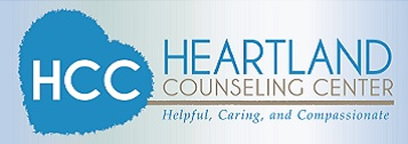 The symptoms of post-traumatic stress disorder (PTSD) can be different for individual people. Typically it appears within 3 months of the traumatic event. However, some people do not start experiencing symptoms for years. For some people, symptoms can arise suddenly, apparently out of the blue. For others symptoms come gradually. Still for others symptoms come and go over time. Many people experience symptoms after a trigger of some sort, reminding them of the traumatic event. These triggers can be a noise, an image, certain words, even smells.
The symptoms of post-traumatic stress disorder (PTSD) can be different for individual people. Typically it appears within 3 months of the traumatic event. However, some people do not start experiencing symptoms for years. For some people, symptoms can arise suddenly, apparently out of the blue. For others symptoms come gradually. Still for others symptoms come and go over time. Many people experience symptoms after a trigger of some sort, reminding them of the traumatic event. These triggers can be a noise, an image, certain words, even smells.
If you have been through a traumatic event and believe you may have post-traumatic stress disorder, then understanding the signs and symptoms is an important first step towards your recovery.
3 Main Types of PTSD Symptoms:
1. Re-experiencing the traumatic event symptoms. You may have intrusive, upsetting memories of the event. You may even have flashbacks and feel like you are experiencing the event all over again. If you have PTSD, you may also experience nightmares or have physical reactions to the event, such as a pounding heart, rapid breathing, muscle tension, and/or sweating.
2. Avoiding reminders of the trauma. If you have PTSD, you may avoid activities, places, thoughts or feelings that remind you of the trauma. You may have lost interest in activities you once enjoyed. Sometimes people experiencing PTSD will not be able to remember important aspects of the trauma. They may feel detached from others or emotionally empty. Often those experiencing PTSD will have a limited sense of the future. They don’t expect that normal life events will happen to them (get married, have a career, etc.)
3. Increased anxiety and emotional arousal. You may experience difficulty falling and staying asleep. You may be irritable or easily angered or have difficulty concentrating. You may feel jumpy or constantly on edge.
This list is not all inclusive. People with PTSD may also experience feeling guilty or ashamed. They may become depressed or have thoughts of suicide. PTSD can also cause physical aches and pains.
Treatment for post-traumatic stress disorder (PTSD)
You don’t have to live your life constantly re-experiencing the trauma, avoiding triggers, and feeling physically and emotionally damaged. PTSD is treatable by a trained mental health professional. Typically people who seek out treatment for PTSD will recover within 6 months. However, treatment times can vary depending on individual circumstances. For some, recovering from PTSD takes much longer.
Treatment for PTSD involves helping you cope with the trauma you experienced and giving you skills to effectively handle your symptoms of PTSD. To do so, many forms of post-traumatic stress disorder counseling involve some type of exposure to the trauma, usually in the form of having you recall images or thoughts from the traumatic event. The counselor will work with you to give you a healthy outlet for your emotions surrounding the trauma. By working through your emotions regarding the trauma, the trauma will have less power over your life and you will be more able to cope with the symptoms of PTSD, which will lessen in intensity over time.
Two proven methods for treating PTSD are Trauma-Focused Cognitive Behavior Therapy (TF-CBT) and Eye Movement Desensitization and Reprocessing (EMDR).
In Trauma-Focused Cognitive Behavior Therapy the counselor will gradually help “expose” you to thoughts, feelings, and situations that remind you of the trauma. The counselor will help you identify upsetting thoughts and will work with you to challenge your distorted and irrational thoughts. The counselor will then work with you to replace these negative thoughts with positive ones.
EMDR combines elements of Cognitive Behavior Therapy with eye movements. The counselor will work with you through a set of eye movements while you are recalling an image or thought from the traumatic event. Through the use of the eye movements, your brain reprocesses the traumatic events, making the traumatic event less painful for you.
Family Therapy is also frequently used in helping people with PTSD. By including your family in therapy sessions, the counselor can help your loved ones understand what you are going through; thereby creating a stronger support system for you. We can also work with you and your family to build stronger communication skills and relationship enhancement skills so that the whole family can heal after a traumatic event.
What about medication for PTSD?
Medication is sometimes prescribed to people with PTSD to help relieve symptoms. While medication may help relieve symptoms of feeling depressed or on edge, medication alone will not treat your PTSD. Only by working through the trauma, learning to express your emotions regarding the trauma, and effectively re-training your brain to process the trauma will you ever completely recover from PTSD.
If you believe you are suffering from PTSD, Contact us Today to learn how a trained mental health professional can help you resolve your feelings surrounding the trauma and help you lead a healthier, happier life.




